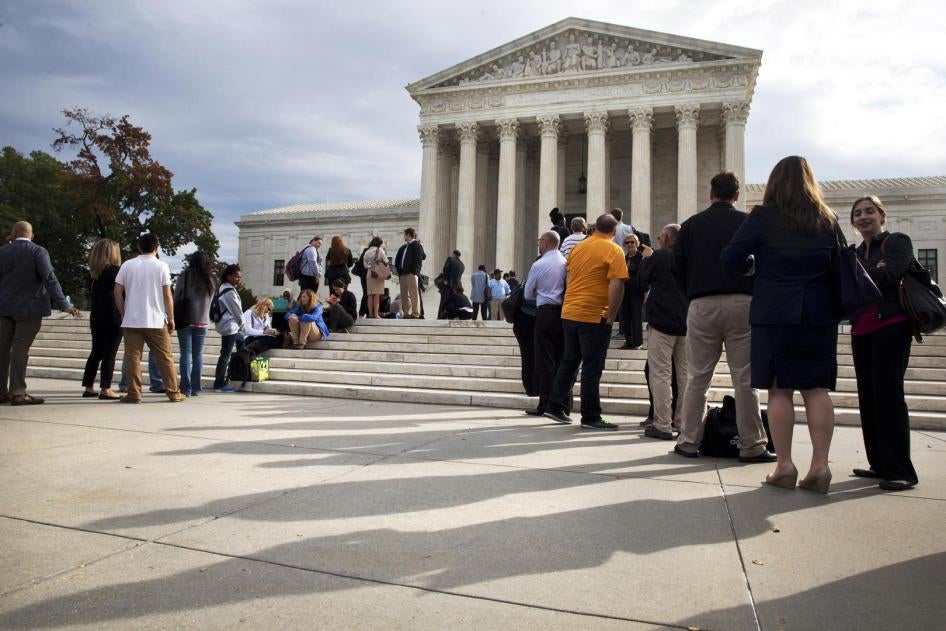Henry Montgomery, sentenced to life without parole for a crime he committed at 17, has spent “each day of the past 46 years knowing he was condemned to die in prison.” Today, the United States Supreme Court gave him new hope.
The court made retroactive its previous decision abolishing mandatory juvenile sentences of life without the possibility of parole. It means that thousands of people who, as children, were told that they would remain in prison until they died will have a chance to ask courts to reconsider their sentences. That includes Montgomery, the petitioner in the case, who, as a 17-year-old boy, killed a deputy sheriff in Louisiana.
The decision follows on a line of Supreme Court cases requiring different treatment for children convicted of serious crimes, including Roper (abolishing the juvenile death penalty), Graham (finding the sentencing of juveniles to life without parole unconstitutional for non-homicide offenses), and Miller (finding mandatory sentences of life without parole for juveniles unconstitutional). These cases recognize what human rights law, common sense, and other aspects of US law have long made clear: that children are inherently different from adults.
Human Rights Watch, together with many others, has been at the vanguard of the fight in the US against these sentences, abbreviated as JLWOP, starting with our first national investigation in 2005. We have strongly supported reforms nearly eliminating the sentence in Florida and sweeping changes to California’s youth sentencing laws. We have also long supported retroactive application of rulings finding criminal sentences unconstitutional or disproportionate, which international human rights law requires and which today’s decision achieves.
This progress is encouraging but much more is needed to ensure that children who commit crimes in the US are held accountable fairly. All US states should abolish JLWOP sentences for all children in all cases, end the practice of trying children as adults unless in exceptional circumstances and after the careful consideration of judges, and stop incarcerating child offenders in adult prisons. Congress should pass a broader, pending sentencing reform bill that includes provisions to eliminate federal JLWOP sentences.
These reforms are necessary to bring the United States closer to upholding children’s fundamental human rights. Perhaps the most corrosive effect of treating children like adults is the message that they are beyond hope. Today the US Supreme Court continued chipping away at that message, stating, “prisoners like Montgomery must be given the opportunity to show their crime did not reflect irreparable corruption; and, if it did not, their hope for some years of life outside prison walls must be restored.”










